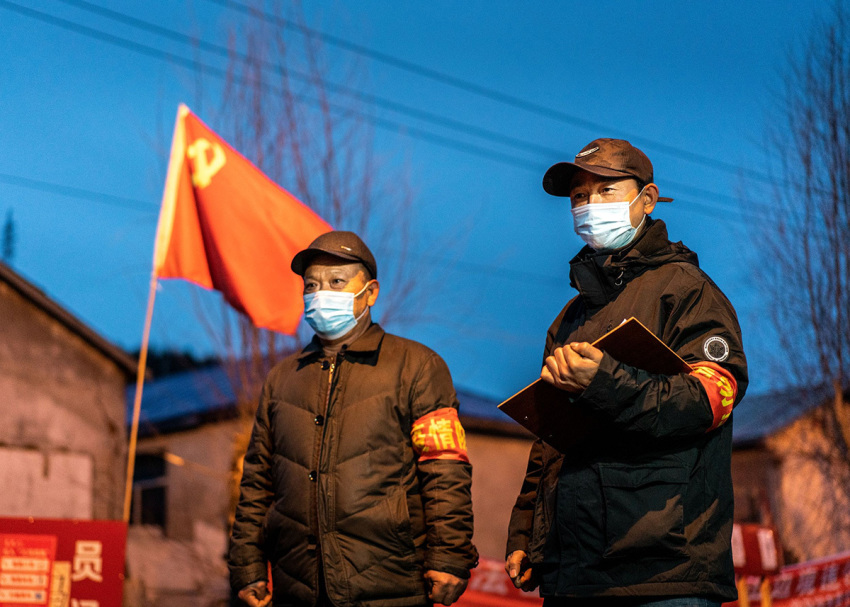China increases surveillance of pastors, tests loyalty to communist party

The U.S. Commission on International Religious Freedom has voiced concern about measures adopted by the Chinese government this year to further tighten state control over government-sanctioned churches, including requiring full support of the Chinese Communist Party and banning religious activity by house churches.
The regulations, called the Measures on the Management of Religious Clergy, supplement the revised 2018 Regulations on Religious Affairs.
The new regulations went into effect earlier this year and reflect the Chinese government’s abuses targeting the clergy of religious groups, the congressionally mandated bipartisan panel warned in a factsheet published last month.
The regulations limit the freedom of clergy members of the five state-sanctioned religious groups in China — the Buddhist Association of China, the Chinese Taoist Association, the Islamic Association of China, the Protestant Three-Self Patriotic Movement and the Chinese Patriotic Catholic Association. They also ban religious activity by independent clergy who are not part of the five state-sanctioned religious groups.
“The new Measures expand an invasive and comprehensive system of control and
surveillance on clergy,” the USCIRF report reads. “Article 3 of the Measures requires clergy — among other demands — to support the Chinese Communist Party’s (CCP) rule, the Chinese socialist political system, and the CCP’s ‘sinicization of religion’ policy, effectively
imposing a political test to ensure clergies’ loyalty to the CCP.”
USCIRF notes that Articles 6 and 12 of the regulations prohibit clergy from engaging in “illegal religious activities” and “foreign infiltration using religion.”
“These vague provisions could be used as a broad pretext to crack down on independent religious groups, ethnoreligious minority groups, and religious groups with perceived foreign connections,” USCIRF warned.
The U.S.-based persecution watchdog group China Aid reports that the new rules make house churches — which were already illegal in China — “the main targets of the CCP and government-sanctioned churches.”
Since the new regulations were issued earlier this year, USCIRF notes that Chinese authorities have “detained and arrested scores of underground Catholic priests,” including Bishop Joseph Zhang Weizhu of Xixiang, Hebei province.
Unregistered Protestant house church leaders have also been detained or arrested, including Elder Zhang Chunlei of Ren’ai Reformed Church and Pastor Yang Hua of Living Stone Church in Guiyang city, Guizhou province.
China Aid notes that the State Administration of Religious Affairs installed other systems to monitor new, current and retired clergy members and surveil clergy suspected of violating any of the stringent restrictions.
Open Doors USA, which covers persecution in over 60 countries, estimates that China has more than 97 million Christians, many of whom worship in unregistered or “illegal” underground churches.
China ranks as the 17th-worst country globally when it comes to Christian persecution on Open Doors USA’s 2021 World Watch List.
Even before the new measures were implemented, house churches faced much oppression from government entities.
“House churches across China are seeing an increased harassment from church raid, crackdown on their activities, to the detention of their leaders,” said Gina Goh, the regional manager for Southeast Asia at the U.S.-based International Christian Concern, earlier this year.
“Beijing seeks to intimidate the leaders in hopes that the churches will dissolve due to fear. Their plot will not succeed, thanks to the resiliency of the Chinese house church. They survived the Cultural Revolution, and they will survive Xi’s era as well.”
Open Doors reports that Chinese Christians face increasing pressure from the government. From 2020 to 2021, China jumped six places on the World Watch List. Over the last three years, China has risen 26 spots on the World Watch List rankings amid a “rapidly deteriorating situation for Christians.”
In recent years, there has been an increase in raids and harassment of Christians while thousands of churches have been damaged, confiscated or destroyed. Open Doors warns that laws regulating religion passed in 2018 continue to be rolled out in provinces nationwide.
The country has also been labeled by the U.S. State Department as a “country of particular concern” for engaging in severe violations of religious freedom.
ICC documented more than 100 incidents of Christian persecution in China between July 2020 and June 2021.



























